The care needs assessment
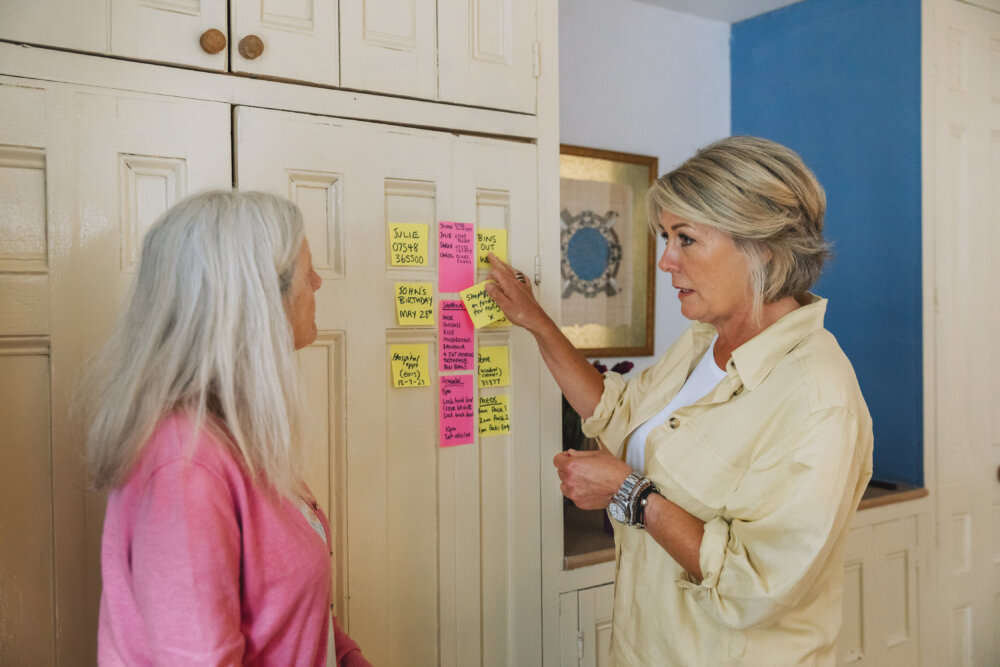
Learn more about the care assessment
If you are considering care for yourself or a loved one, you will undoubtedly be curious to know more about the Care Needs Assessment, including how to get one, how the assessment works, what questions you might be asked, and more. Our guide on How To Choose and Arrange Home Care Services details the steps involved in arranging care, but here, we will go into the specifics of the Care Needs Assessment and why this is such an important part of the process. At Home Instead, our aim is to help people age positively and in place by bringing expert care to their home. For nearly 20 years, we have been providing the highest standard of care, and creating industry-leading training programmes for our Care Professionals that are accredited by nursing and medical professionals. Today, we are the world’s largest global home care network, supporting over 100,000 older adults with personalised, tailored care at home. So if you have any questions or reservations about starting the Care Needs Assessment process, we can help.
What is a Care Needs Assessment?
A Care Needs Assessment is an evaluation done to determine what an individual needs for their health-related care and social support. By undergoing a Care Needs Assessment, an independent assessor can see what your physical, mental and emotional needs might be. For example, you might need a hand getting dressed in the morning, or with home administration such as paying bills, or perhaps you are feeling lonely and in need of companionship.The Care Needs Assessment will take into account things like:
- Your mobility needs – could you benefit from having grab rails or a stairlift installed in your home?
- Your communication needs – do you need companionship and social activities to improve mental health symptoms?
- Your personal care needs – are you struggling with getting washed and dressed regularly?
- Your medical conditions – do you have any medical concerns requiring medication or regular check-ups?
A Care Needs Assessment is often carried out by a social worker, healthcare worker or someone else qualified to examine your day-to-day needs. The outcome is a personalised care plan designed to help identify current and future care needs (known as anticipatory care planning) of older adults and ensure the right care and qualified care staff can be arranged to meet these needs. A truly effective Care Needs Assessment will provide a plan that also helps family members prepare for the future financially, practically and emotionally, and also guides them towards any additional support that can help with overall health and wellbeing outcomes, and quality of life. You can read more about the Care Plan in our article: All About The Care Plan
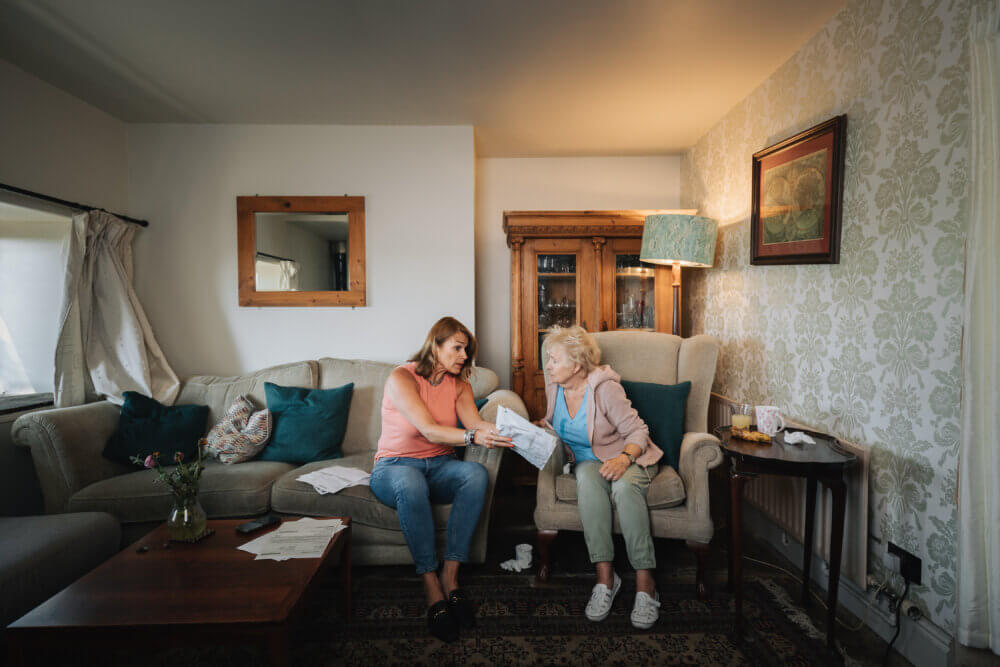
Who should have a Care Needs Assessment?
Making the decision to seek support can feel overwhelming, but you may find our guide on How To Tell If You Or A Loved One Needs Support helpful if you are wondering whether or not it’s time to arrange home care services. If you believe you may need help in certain areas of your life, your eligibility for this will depend on a number of factors, including where in the country you live. The local authority organising your Care Needs Assessment will take into account whether or not you are able to manage or maintain:
- Adequate nutrition
- Personal hygiene
- Toilet requirements
- Clothing needs
- Moving around in and making use of your home safely
- Home maintenance (cleaning, etc.)
- Family or other personal relationships
- Accessing and engaging in work, training, education or volunteering
- Making use of necessary services in the community, such as public transport or recreational facilities
- Additional caring responsibilities (for example, if you have a child)
They will also consider whether you struggle to achieve a specific outcome without needing assistance, without causing significant pain, without stress or anxiety, without endangering yourself or others, or without taking much longer than would normally be expected. If you are unable to achieve two or more of the above, you may be eligible for care and support, and this is what the Care Needs Assessment helps to evaluate.
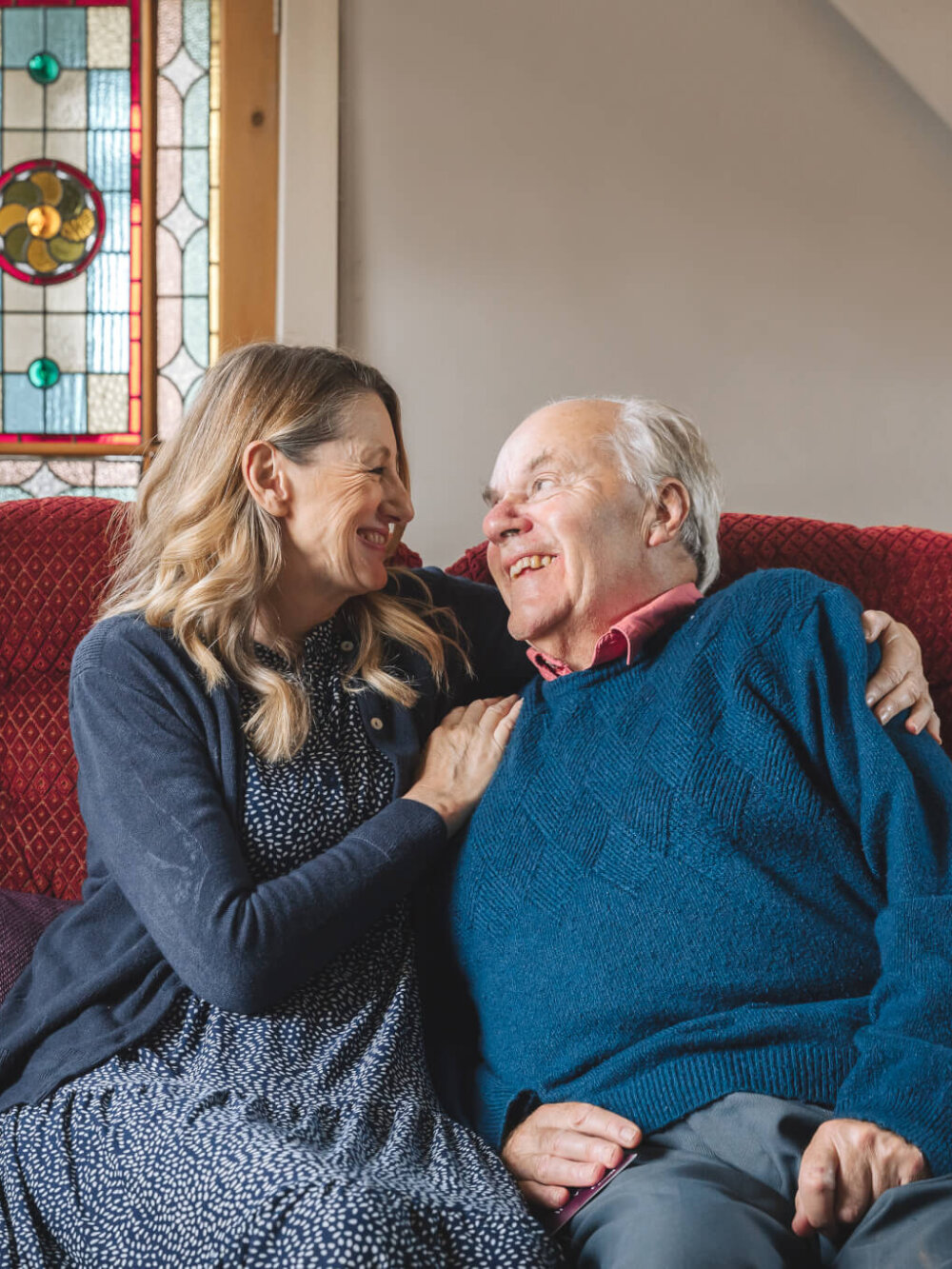
Do I have to pay for a Care Needs Assessment?
No. Anyone can apply for a Care Needs Assessment, and it is completely free to organise, no matter your level of income.
How do I get a Care Needs Assessment?
If you believe you could benefit from a Care Needs Assessment for you or a loved one, it’s time to organise this. To book an assessment, you will need to contact the local authority or healthcare provider in your area.
- In England and Wales, you can find out which local council is relevant to you on the gov.uk website
- In Scotland, you can find your relevant local council on the mygov.scot website
- In Northern Ireland, you can find your relevant local council on the nidirect website
If you are unsure about the process of contacting your local council, and do not have anyone who can do this for you, you can visit your GP to have a conversation about where to start. They can recommend options they believe could work for your medical needs, put you in touch with your local community healthcare team (regulated by Integrated Care Systems), and help to arrange a Care Needs Assessment if you cannot do this yourself. You can also contact the local authority on behalf of a loved one to arrange a Care Needs Assessment if you think they may be struggling to cope in certain areas of life.
Need an urgent assessment?
If you need an urgent Care Needs Assessment for yourself or a loved one, you should make this clear when booking. Sometimes, a service can begin providing support before a Care Needs Assessment has been completed, so don’t be shy about letting them know if your care needs are high-priority. This will be followed by a full assessment as soon as possible to get the proper, personalised care in place.
What happens in a Care Needs Assessment?
A Care Needs Assessment is not something to worry about at all. The social or healthcare worker who comes to your home will simply want to get to know you and your daily routine, and figure out what interventions they can recommend to help improve your quality of life and make things easier for you. Although you do need to prepare a few things beforehand (more on this below), you shouldn’t think of it as an examination, as you don’t need to learn anything beforehand. Just focus on being open and honest; don’t try to conceal anything you struggle with as the point in the assessment is to see where you need genuine help. A Care Needs Assessment typically goes something like this:
- You or your advocate will make a phone call or online enquiry at the relevant website above.
- You will be contacted via your preferred contact method to let you know when someone will visit. You may be offered a phone assessment, but if you would prefer a face-to-face assessment don’t be afraid to ask for this.
- An assessor with appropriate training and experience will visit your home. This could be a social worker, occupational therapist or someone else with the right qualifications.
- At your assessment, the assessor may walk around your home, examining what your specific needs may be and what interventions could help you most.
- You will have a discussion about your daily activities, health conditions or mobility needs, and personal preferences. For example, if you would like to arrange home care rather than moving to a care home, you can let them know. Remember, the end goal of your local council is to keep older people in their own homes as long as possible if they are safe and well there, so your assessor will do all they can to support this.
- The assessor might chat to your family members or caregivers if they are present at your assessment, to get a more holistic view of your needs.
- The assessor will clarify what support might be available, and what their recommendations are. This might include anything from a carer, to personal alarms, to home adaptations, to activity groups, and more.
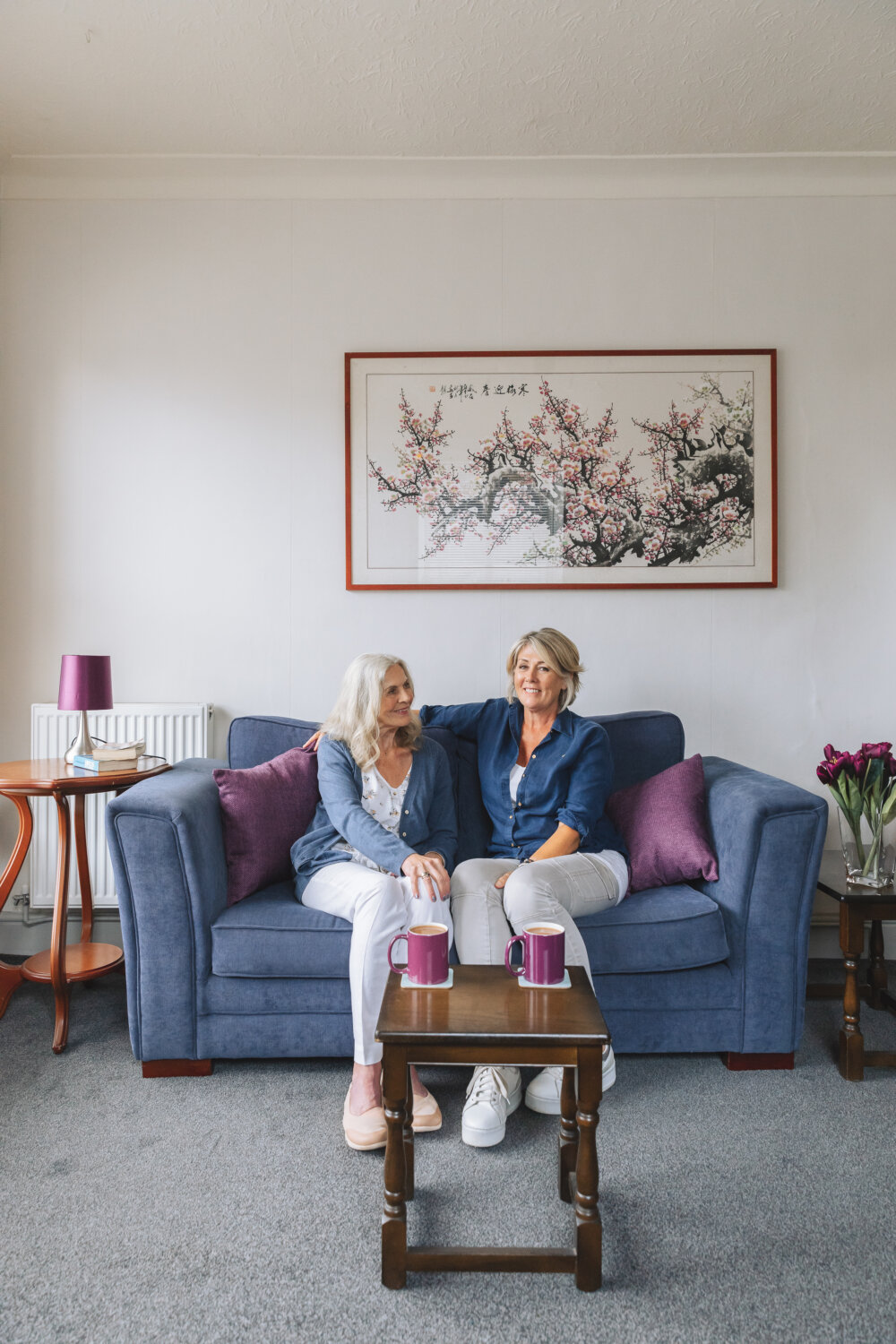
What should you do to prepare for the assessment?
The Care Needs Assessment is simply about observing how you currently live, and talking to you about the things you struggle with, so there isn’t much to do in the way of preparation for your assessment.
However, you cannot assume the assessor will fully understand your challenges from one meeting, so it can help to gather any relevant information together ahead of time so you don’t forget any details. You may want to list out things like:
- What specific challenges you experience day to day
- Your daily routine
- Any health conditions you have, and your medical history
- Any medications you take
- Your care preferences
If you aren’t sure exactly what care needs you have, it may help to keep a brief diary in the week leading up to your visit so you have some fresh examples of times when you may have needed a little more help. This can be handy for identifying what help you need, as well as when you need it most. It can also help to show the assessor – if you tend to have some good days and some bad days – that even if your needs aren’t obvious on the day they arrive, you can discuss what your needs are on the not-so-good days.
During your assessment, you may be asked about your emotional and social needs too. While this can be a difficult discussion to have, this is not the time to bottle up any complicated emotions, such as loneliness or fear. Let your assessor know if your emotional needs are not being met so they can suggest helpful interventions like companionship or social activities.
It can help to involve a family member or caregiver in the assessment process. Having someone you trust with you can help you feel supported throughout, offer more insight on what your care needs may be, and can be useful when answering difficult questions. The people who know you best may have thoughts on what your home care needs will be, so try to involve them in the discussion if you feel comfortable doing so. If you want to talk about anything private, you can ask them to leave the room. If you don’t have anyone who can support you during the process, you have the right to request an independent advocate who can ensure your preferences are being taken into consideration.
Openness and honesty are key during the assessment, as the goal is to keep you happy and healthy living at home. With person-centred care a priority, your local authority should involve you in your assessment as much as possible. Whether you need an interpreter to fully communicate, an advocate to help if you have difficulty retaining information, or something else, your assessor must take this into account.
What sort of questions might you be asked in an assessment?
Your assessor will aim to understand as much about your care needs as possible during their visit, so they will likely ask you some questions about your situation. The questions might include things like:
- What difficulties do you face on a daily basis?
- What is your daily routine like?
- Do you have someone currently looking after you?
- What difference could the relevant interventions make to your life?
- What medical issues do you currently have, and what medications do you take?
- What is your medical history?
- Do you have any sight or hearing problems?
- Do you have any mobility problems?
- Have you had any falls?
- Do you have problems with incontinence?
- Do you struggle to get washed and dressed every day?
- Do you suffer from mental health issues like depression?
- What are your hobbies and interests?
- What important relationships do you have with people around you?
- Do you eat regular meals?
- Do you drink or smoke?
- Do you need help organising finances like Personal Independence Payments (PIP)?
- Is your accommodation set up for your needs?
- Can you get to shops and other facilities if needed?
- Have you had any problems with your personal safety, such as abuse or neglect?
- Is your preference to stay at home or move to a care home? Which area would you prefer to be in a care home, if applicable?
What happens after the assessment?
If you are eligible for care, your assessment will be followed by a written copy of your new care plan, which will detail all information about the care and support you need. For example, adaptations to your home (grab rails, stairlifts, etc.), home help (cleaning, cooking, etc.), or respite care in a day centre may be recommended.
Your local council will then usually carry out a financial assessment to decide whether your care can be covered by the council, or if you will have to pay some or all of the cost yourself.
If you are arranging care yourself or for a loved one, you may find our guide useful: How To Choose and Arrange Home Care Services
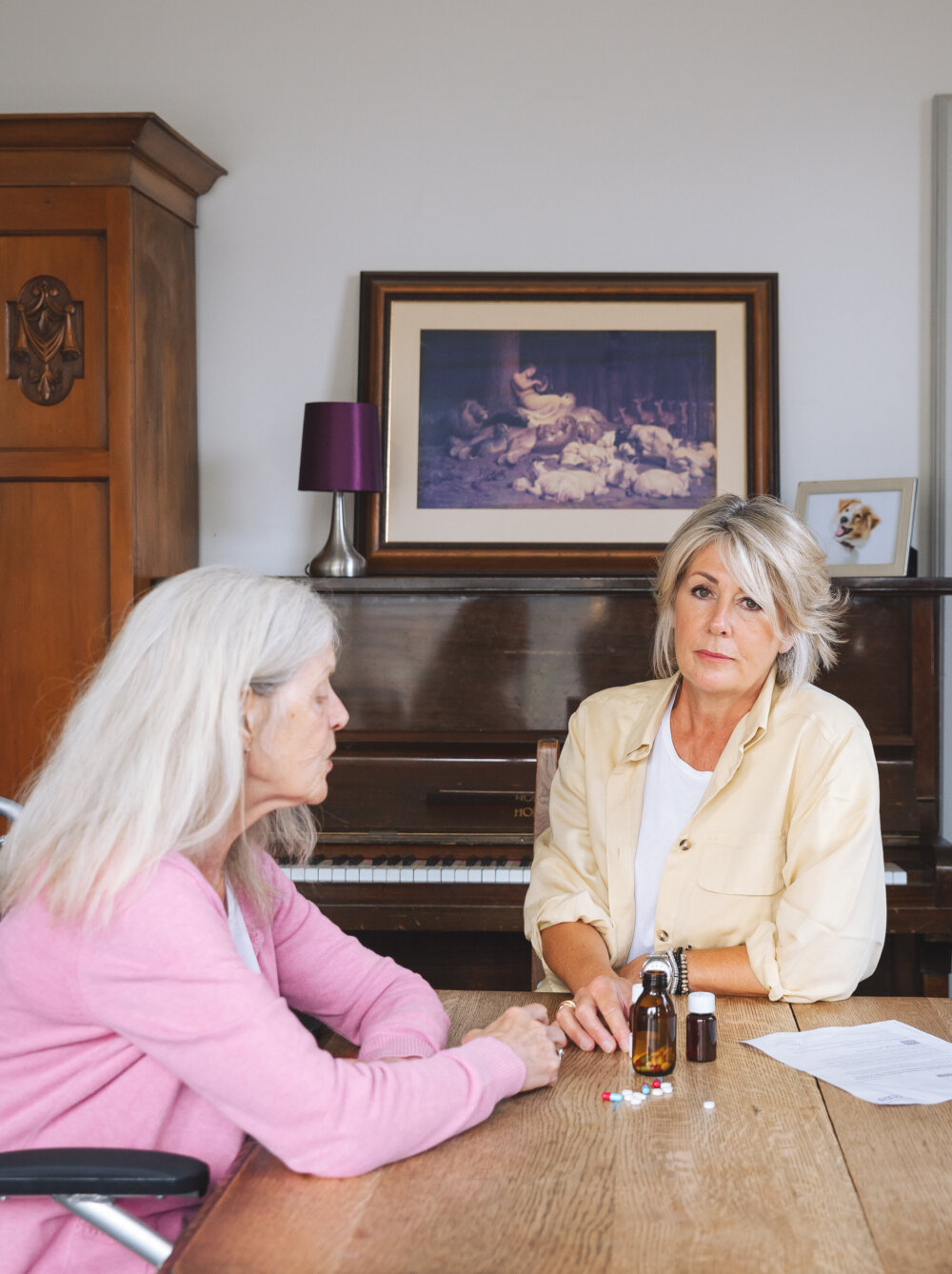
What if I’m caring for someone?
All of the above information on the Care Needs Assessment is relevant if you are arranging this on behalf of someone you are caring for. However, if you are currently caring for someone, you’re also entitled to ask for a free carer’s assessment, which looks at what help could make your life easier as a carer.
This assessment may lead to recommendations like respite care so you can take breaks, training, help with transport needs, support groups for carers, benefits advice and more.
If your next step is considering care options, you may find our guide helpful: The Benefits Of Home Care vs A Care Home
At Home Instead, we understand there’s no place like home, so our home care offering aims to help older adults retain independence and stay in familiar surroundings. We offer a number of bespoke services which can be tailored to your needs, with Care Professionals that are highly trained to deliver the individualised service you require. You do not need a Care Needs Assessment to organise private home care through our service, so if you are interested in learning more about the many ways we can help, reach out to the team at Home Instead.
We’re an award-winning home care provider and part of a worldwide organisation devoted to providing the highest-quality relationship-led care for older people in their own homes. Arranging care for yourself or your loved one shouldn’t be stressful, so whatever questions you would like answered, feel free to reach out to the Home Instead team to discuss your needs.

Michelle Tennant, Clinical Governance Lead